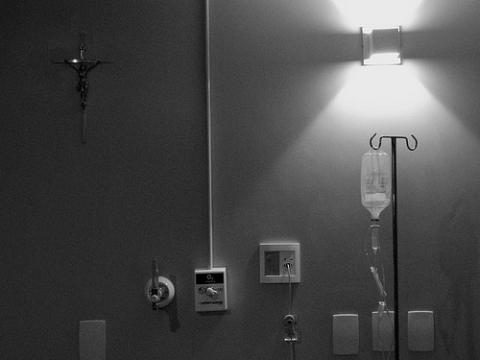Ireland's falling life expectancy

The impact of the austerity measures is particularly pronounced in Ireland's health services. While the health budget has been severely cut, patients also face increased charges at a time when incomes are tumbling. The inevitable result is, as Sara Burke points out below, that the health of ordinary people inIreland will decline and that ultimately lives will be lost.
The last three "austerity" budgets have directly contributed to increased health inequalities. Cutting social welfare rates and the minimum wage has put more people below the poverty line. Greater poverty means poorer health and shorter lives.
The continuation of these policies will mean even more people in poverty, worse health and earlier death for many of those on lower incomes. Fine Gael plans to cut social welfare rates over three years by another €10 – quite simply this policy is bad for people's health, especially the health of those who experience most poverty – children, people with disabilities, carers, lone parents, the long term unemployed, and the working poor.
And not only do these people now have less money, they also have to pay for more of essential health and social care. The introduction of the 50 cent prescription charge for medical card holders by the outgoing government is perhaps the crudest example of a government measure intended to hit hardest those who have least.
The international evidence on charging for prescription drugs is clear – it puts people who need essential drugs off taking them. It especially impacts on those on low income, older people, people with psychiatric conditions and women, particularly older, poorer women with psychiatric conditions. The prescription charge was introduced by the government in order to "save" €25 million, however all the research shows it will cost more in the long term because people who stop taking their drugs get sick and need acute hospital care. This is much more expensive than not charging them for their drugs in the first place.
We know that people who do not have medical cards and do not have private health insurance fare worse in the Irish health system. Many of these, often the working poor and their families, put off going to the GP because they cannot afford the €45-€60 fee. Declining incomes through tax increases, the introduction of new levies and the universal social charge, public sector pay cuts and nearly half a million people out of work mean more people cannot afford to go to their doctor. It is notable that while most incomes are declining, GP fees have not gone down.
Other charges introduced during the last three budgets include a €25 hike for those presenting in Emergency Departments (now at €100), increased spend up to €120 (up from €100) a month for prescriptions for the 65 per cent of the population without medical cards and increases in private health insurance.
So people have less money to pay for more expensive services and the public services on which they are even more dependent are having their budgets cut. Well over one billion euro has been taken out of the health budget in the last two years of austerity, and another €700,000 is due to come out in the next three years. While most people agree that there are efficiencies to be made in the health system, there are only so many "savings" that can be made before frontline services are hit.
Providing healthcare is very people dependent. Providing quality healthcare is even more so. The National Recovery Plan agreed by government with the EU/IMF requires an additional 1,500 people to come out of the health system each year. Technically this is what is called "natural attrition" - these people would be retiring or leaving anyway. However if 1,200 of them are nurses, doctors, physiotherapists, carers, porters, and laboratory technicians, losing them and not being allowed to replace them means significant cuts in frontline services. Currently none of these are replaced due to the coarse staff moratorium.
Advocating further public sector "reform" through slashing staff numbers means there will be fewer services for the public who already have less money in their pockets to buy care and who are experiencing poorer health.
While all parties except Fianna Fáil are promising a universal health system where access is based on medical need, not ability to pay, the Labour Party are alone in their detailed proposals on how this might possibly happen.
Under the Fine Gael universal health insurance plans, paying for it is dependent on unspecified efficiencies that are in turn are reliant on competing private insurers and providers driving down costs. Under the Labour model, there is much greater public interest, with one public primary care insurer and two public hospital insurers and a greater public interest in determining the package of care to which all citizens will be entitled.
Whether either of these proposals, let alone a compromise between them, is possible within the constraints of what is already agreed with the EU/IMF in not clear.
Image top via cidadevazia on Flickr.
